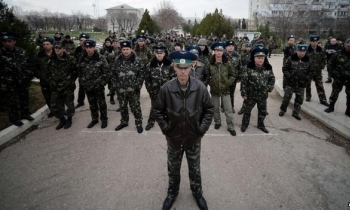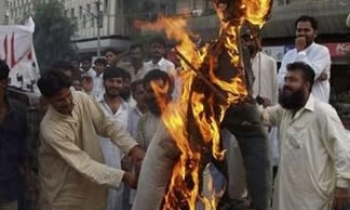A Chinese newspaper editor has died from injuries months after traffic police beat him up for an expose about exorbitant electric bicycle licence fees, Reuters has reported. Wu Xianghu, deputy editor of Taizhou Wanbao, died on Thursday last after receiving serious injuries in October 2005 when traffic police in the eastern coastal city of Taizhou, Zhejiang province, attacked him for an expose that embarrassed them.

Wu, 41, died of liver and kidney failure after months of hospitalisation. State-run Xinhua News Agency reported in October that the police assault had damaged his liver, which was already compromised due to a previously existing medical condition.
"The death of our colleague after he was brutally assaulted for his work is a cruel reminder of the new dangers faced by Chinese journalists," Committee to Protect Journalists (CPJ) Executive Director Ann Cooper said. "The government must ensure the safety of the working press. This begins by bringing to justice the attackers of Wu Xianghu."
On October 20, 2005, dozens of uniformed traffic officers arrived at the offices of the Taizhou Wanbao evening newspaper, assaulted Wu, carried him from the building and forced him into a police van. The attack stemmed from a report in the previous day's newspaper on high fee collections for electric bicycle licenses, according to reports.
Senior officer Li Xiaoguo was removed from his post for his role in the incident, Xinhua reported in October. Li had called the other police officers to the scene after his demands for an apology for the October 19 report had led to an argument with Wu. "I am not a policeman today," Li said during the attack, according to local reports.
Taizhou Wanbao defended the report, saying that it was reported in cooperation with local government agencies. The Hong Kong-based South China Morning Post quoted an unnamed staff member at the Taizhou News Group who said that authorities had prevented local media from reporting on Wu's death, and that his colleagues believed that criminal charges should be filed in the case.
"It's definitely a criminal case, as Wu was beaten up severely and died. We want justice," the Post quoted the staff member as saying. "We can only rely on overseas media to report the truth now, even though we are journalists, too."
"This award-winning journalist was killed because he wrote an article that upset the local police," said Reporters sans Frontières (RSF). "The Chinese authorities should not limit themselves to just sacking the person responsible for his murder, because that amounts to accepting that police have the power of life and death over journalists. This case indicates the climate of fear in which the media has to work," RSF added.
Journalists who report on local crime and corruption in China's newly competitive media environment face increasing incidents of violent attack in retribution for their work, according to CPJ research.









